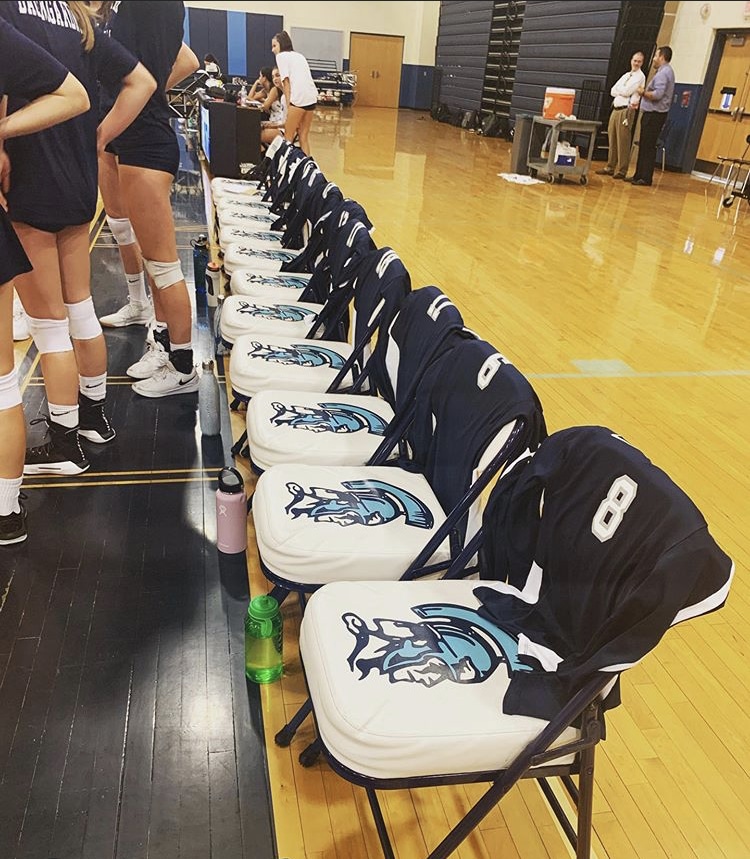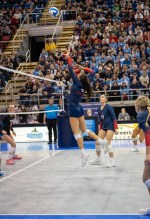The Power of the Bench: Why Every Role Matters in Volleyball
Subscribe to Prep Dig using discount code digdakotas30
Follow on Instagram@prepdigdakotas
In every volleyball gym, the spotlight naturally gravitates toward the athletes soaring above the net, racking up kills, stuffing blockers, and digging rockets off the floor. The stat sheet celebrates them, the highlights glorify them, and fans cheer for their names. But what often goes unrecognized is the force behind those players — the athletes seated just a few feet away on the bench. For many, the bench is seen as a place of waiting, or worse, a symbol of not being good enough. In reality, the bench represents one of the most important roles in sports. It is the heart of resilience, culture, and team identity, carrying just as much value as the scoreboard heroes on the court.
The Bench as a Crucial Role
Being on the bench isn't about absence — it's about presence. Athletes on the sideline often serve as the emotional backbone of the team. They are the voices that bring energy after every point, the encouragers who keep momentum alive, and the first to rush onto the floor when a teammate needs a pat on the back. Their role may not show up in kills, digs, or aces, but it's visible in the team's spirit.
For every substitution waiting at the scorer's table, there is a silent discipline in staying ready. Bench players must maintain the same mental sharpness as those on the floor. They read the game, anticipate situations, and prepare to step in seamlessly when called. When a starter rolls an ankle, gets subbed out for rotation balance, or simply struggles through a rough patch, it's the bench that carries the safety net of preparedness.
The Mental Challenge of the Bench
Let's be clear: the bench is not easy. For competitive athletes who have spent years training, sacrificing weekends, and logging thousands of reps, sitting on the sideline can feel frustrating. There's the constant internal dialogue of “Why not me?” and the temptation to measure self-worth by playing time. This mental battle makes the bench one of the hardest positions in volleyball — but also one of the most rewarding.
Athletes who embrace the bench role learn patience, humility, and perseverance. They learn to support others even when personal goals aren't being fulfilled. They discover that leadership doesn't require being on the court — it requires being consistent in attitude, actions, and commitment. This growth is invaluable, not only to the team but also to the individual's character development.
What the Bench Represents
The bench symbolizes the true definition of team. While the scoreboard shows only points, the bench shows sacrifice. It represents athletes who put aside individual pride for the greater good of the group. It symbolizes readiness — the idea that when the coach calls your number, you must step in and contribute instantly, without hesitation or excuse.
Perhaps most importantly, the bench represents belief. Even when not playing, bench players believe in their teammates, in their system, and in the mission of the team. They fuel the atmosphere with positivity. That belief is contagious, and it often tips the balance in close matches where momentum is fragile.
Energy Transferred from Bench to Court
Anyone who has attended a state tournament or high-stakes match has felt it: the roar from the bench after a block, the synchronized cheers during a serving run, the eruption after a kill. That energy seeps into the athletes on the court. Volleyball is unique because momentum swings are everything. A well-timed bench eruption can rattle an opponent, fire up a setter, or help a libero shake off an error.
Coaches often say, “Energy is a choice.” Bench players embody this mantra. Their voices keep the gym alive, reminding starters that they are never alone. In many cases, the bench becomes the “seventh player” — unseen in the stat column but undeniable in the outcome.
Leadership Without Playing Time
Another overlooked aspect of the bench is leadership. Not every leader is the one making the final kill in the fifth set. Some leaders are the ones constantly talking to teammates in between plays, pointing out scouting notes, or reinforcing confidence when errors pile up.
A player on the bench often sees the game with fresh eyes. They aren't bogged down by the fatigue of long rallies or the nerves of serving in crunch time. From the outside, they can notice defensive patterns, setter tendencies, or opponent weaknesses. Sharing these insights builds trust and shows that leadership isn't dependent on minutes played.
College Coaches Are Watching
Here's something many athletes don't realize: college coaches spend just as much time watching the bench as they do the court. Why? Because body language on the sideline reveals a player's true character.
A coach can see skill on film — but they want to know how a player reacts when they're not in the spotlight. Are they engaged or distracted? Do they cheer for teammates or sulk in silence? Do they stay locked in, ready to contribute, or check out mentally the moment they're subbed out?
For recruiters, these moments are telling. Athletes who stay positive, vocal, and locked in on the bench signal maturity, team-first mentality, and resilience. Those qualities are just as important to building a championship program as physical talent. In many cases, a coach will cross a player off the list not because of their performance on the court — but because of how they carried themselves off it.
Stories of Great Bench Impact
Volleyball history is filled with examples of unsung heroes who stepped off the bench to change the course of matches. A serving specialist who delivers an ace under pressure. A defensive substitute who digs a ball that keeps the rally alive. A backup setter who comes in and stabilizes the offense.
These moments remind us that bench players are not “extras” — they are specialists, leaders, and difference-makers. Even when they don't touch the court, their daily practice contributions sharpen the starters. The standard of excellence doesn't happen without them pushing teammates in drills, in scrimmages, and in weight training sessions.
Beyond the Game: Life Lessons
Perhaps the greatest value of the bench is the way it mirrors real life. In life, not everyone will always be in the spotlight. Sometimes, people must serve quietly, prepare diligently, and support others without recognition. Learning how to thrive in that environment builds resilience that carries far beyond sports.
Former bench players often say they learned more about character during those seasons than when they were stars. They learned patience when opportunities were limited, grit when motivation was tested, and joy in celebrating others' success. Those lessons last far longer than a stat sheet.
Coaches' Perspective
Ask any coach, and they'll tell you the same: teams live and die by their bench. A positive, engaged bench can turn an average group into a contender. A negative or disengaged bench can fracture team chemistry, no matter how much talent is on the floor.
That's why coaches look for athletes who embrace the bench with maturity. They understand that players who support their team even in limited roles demonstrate leadership qualities that will eventually earn them bigger opportunities. The bench is not the end of the road; it's part of the journey.
Redefining Success
Too often, athletes define success only by minutes played or stats recorded. But the bench challenges that definition. Success can be seen in a perfectly timed cheer, in being ready when called, in helping a teammate succeed, or in bringing contagious energy. Success is knowing you contributed — even if not through a spike or dig.
When teams understand this, they become unstoppable. Every role matters, and every player feels valued. The bench ceases to be a waiting room and becomes an engine room.
Conclusion: The Hidden Strength of the Bench
In the end, the bench is not a symbol of weakness or failure. It is a badge of strength, patience, and selflessness. It represents the essence of being part of something bigger than yourself.
While the players on the floor may win the points, the bench wins the culture. And culture is what sustains teams through long seasons, tough matches, and high-pressure moments.
The bench may be hard, but it is powerful. It is valuable. It is essential. Because in volleyball — and in life — greatness is never just about the few in the spotlight. It's about the collective, and the bench is proof that every role is worth celebrating.
Thank you to all my readers for making this journey possible. My goal has always been simple—to shine a light on athletes at every level, from Division I to NAIA, and give them a platform to keep chasing their love for the game. Every player deserves a shot, and I'm honored to help tell their stories.
Please help us continue to grow this positive platform for players by spreading the word and encouraging your friends to subscribe at PrepDig.com. With your support, we can create unforgettable memories and experiences!
This journey is created by the village—athletes, coaches, families, and subscribers.
Thank you for making it all possible! ~ Theresa Hickman
Follow on Instagram@prepdigdakotas

















